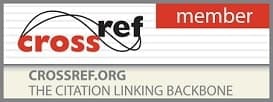Printed Journal | Refereed Journal | Peer Reviewed Journal
2023, Vol. 3, Issue 2, Part B
Analysis of human health risk assessment for stereoisomers of propiconazole fungicide by cheminformatics study
Author(s): Bhupinder Mehta and Manju Mehta
Abstract: Propiconazole is a broad-spectrum systemic triazole class of fungicides. This fungicide is used on many fruits, vegetables, cereal grains, turf grass and ornamental plants. It is used to combat powdery mildew, rusts, and leaf spot diseases. Propiconazole is a demethylase inhibitor (DMI) fungicide and it inhibits the activity of lanosterol-14-a-demethylase enzyme. This enzyme synthesises ergosterol which is key component of fungal cell wall. Propiconazole inhibits the growth of fungi by blocking synthesis of ergosterol and thus, belongs to the class of ergosterol biosynthesis inhibiting fungicides (EBIFs). Fungicides are indiscriminately used in large amounts and pose a huge threat to environment and living organisms. The use of fungicides may cause accumulation of their residue in agricultural products. It can result in various types of toxicities and may lead to human health risk. It has moderate acute oral toxicity in rats and mice and has been reported to be liver hepatotoxicant and a hepatocarcinogen having adverse reproductive and developmental toxicities. Exposure to propiconazole has been documented for behavioural disturbances like anxiety, depression and cognitive impairment. Propiconazole has two chiral centres and exist as four stereoisomers. In this paper predictive study of the impact of stereochemistry on toxicological aspects of propiconazole has been carried out using Chem Axon-chemicalize (licenced) and ADMETlab 2.0 cheminformatic tools.
DOI: 10.22271/27889289.2023.v3.i2b.101
Pages: 116-122 | Views: 335 | Downloads: 118
Download Full Article: Click Here

How to cite this article:
Bhupinder Mehta, Manju Mehta. Analysis of human health risk assessment for stereoisomers of propiconazole fungicide by cheminformatics study. South Asian J Agric Sci 2023;3(2):116-122. DOI: 10.22271/27889289.2023.v3.i2b.101





